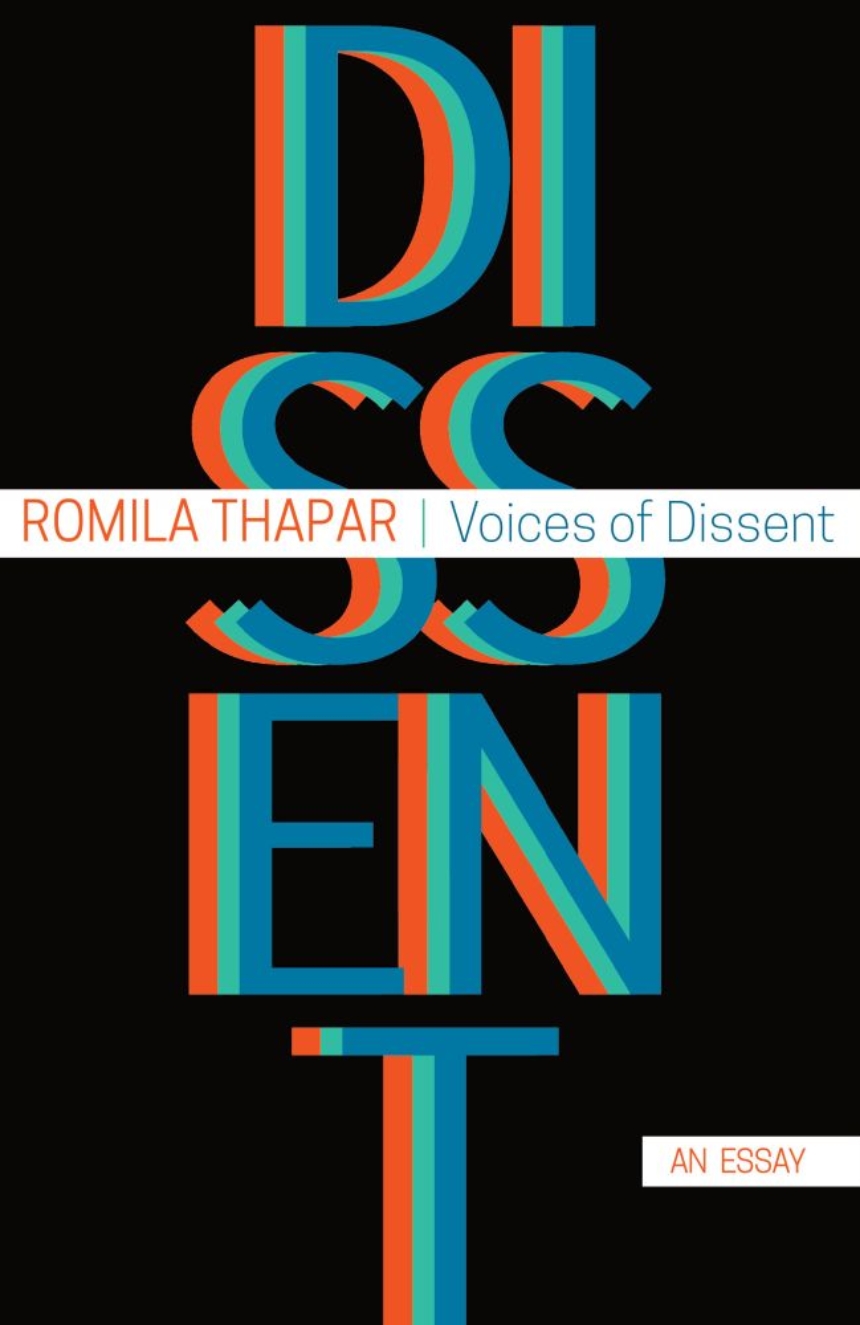Written by one of India’s best-known public intellectuals, this book is essential reading for anyone interested in India’s fascinating history as well as the direction in which the nation is headed.
People have argued since time immemorial. Disagreement is a part of life, of human experience. But we now live in times when any form of protest in India is marked as anti-Indian and met with arguments that the very concept of dissent was imported into India from the West. As Romila Thapar explores in her timely historical essay, however, dissent has a long history in the subcontinent, even if its forms have evolved through the centuries.
In Voices of Dissent: An Essay, Thapar looks at the articulation of nonviolent dissent and relates it to various pivotal moments throughout India’s history. Beginning with Vedic times, she takes us from the second to the first millennium BCE, to the emergence of groups that were jointly called the Shramanas—the Jainas, Buddhists, and Ajivikas. Going forward in time, she also explores the views of the Bhakti sants and others of the fifteenth and sixteenth centuries and brings us to a major moment of dissent that helped to establish a free and democratic India: Mahatma Gandhi’s satyagraha. Then Thapar places in context the recent peaceful protests against India’s new, controversial citizenship law, maintaining that dissent in our time must be opposed to injustice and supportive of democratic rights so that society may change for the better.
People have argued since time immemorial. Disagreement is a part of life, of human experience. But we now live in times when any form of protest in India is marked as anti-Indian and met with arguments that the very concept of dissent was imported into India from the West. As Romila Thapar explores in her timely historical essay, however, dissent has a long history in the subcontinent, even if its forms have evolved through the centuries.
In Voices of Dissent: An Essay, Thapar looks at the articulation of nonviolent dissent and relates it to various pivotal moments throughout India’s history. Beginning with Vedic times, she takes us from the second to the first millennium BCE, to the emergence of groups that were jointly called the Shramanas—the Jainas, Buddhists, and Ajivikas. Going forward in time, she also explores the views of the Bhakti sants and others of the fifteenth and sixteenth centuries and brings us to a major moment of dissent that helped to establish a free and democratic India: Mahatma Gandhi’s satyagraha. Then Thapar places in context the recent peaceful protests against India’s new, controversial citizenship law, maintaining that dissent in our time must be opposed to injustice and supportive of democratic rights so that society may change for the better.
254 pages | 1 halftone | 5 1/4 x 8 1/2 | © 2020
History: Ancient and Classical History
Religion: South and East Asian Religions
Reviews
Table of Contents
Preface
Prologue: Is Dissent Necessary?
1. The Dasyah-putrah Brahmana, or the Dasi-putra Brahmana, the Brahmana Who Is the Son of a Dasi
2. The Presence of the Shramanas
3. Otherness Imprinted
4. The Bhakti Sant and the Sufi Pir
5. A Recapitulation
6. A Modern Movement of Dissent in the Context of the Nationalism of the Present
7. Gandhi?’s Satyagraha
8. The Social Articulation of Protest
9. Did the Public Response to Satyagraha Come Out of an Embedded Tradition of Dissenting Forms?
10. Epilogue: Should We Remember Our Many Voices of Dissent from the Past and Hear Them Speak to Us Today?
Readings
Prologue: Is Dissent Necessary?
1. The Dasyah-putrah Brahmana, or the Dasi-putra Brahmana, the Brahmana Who Is the Son of a Dasi
2. The Presence of the Shramanas
3. Otherness Imprinted
4. The Bhakti Sant and the Sufi Pir
5. A Recapitulation
6. A Modern Movement of Dissent in the Context of the Nationalism of the Present
7. Gandhi?’s Satyagraha
8. The Social Articulation of Protest
9. Did the Public Response to Satyagraha Come Out of an Embedded Tradition of Dissenting Forms?
10. Epilogue: Should We Remember Our Many Voices of Dissent from the Past and Hear Them Speak to Us Today?
Readings

